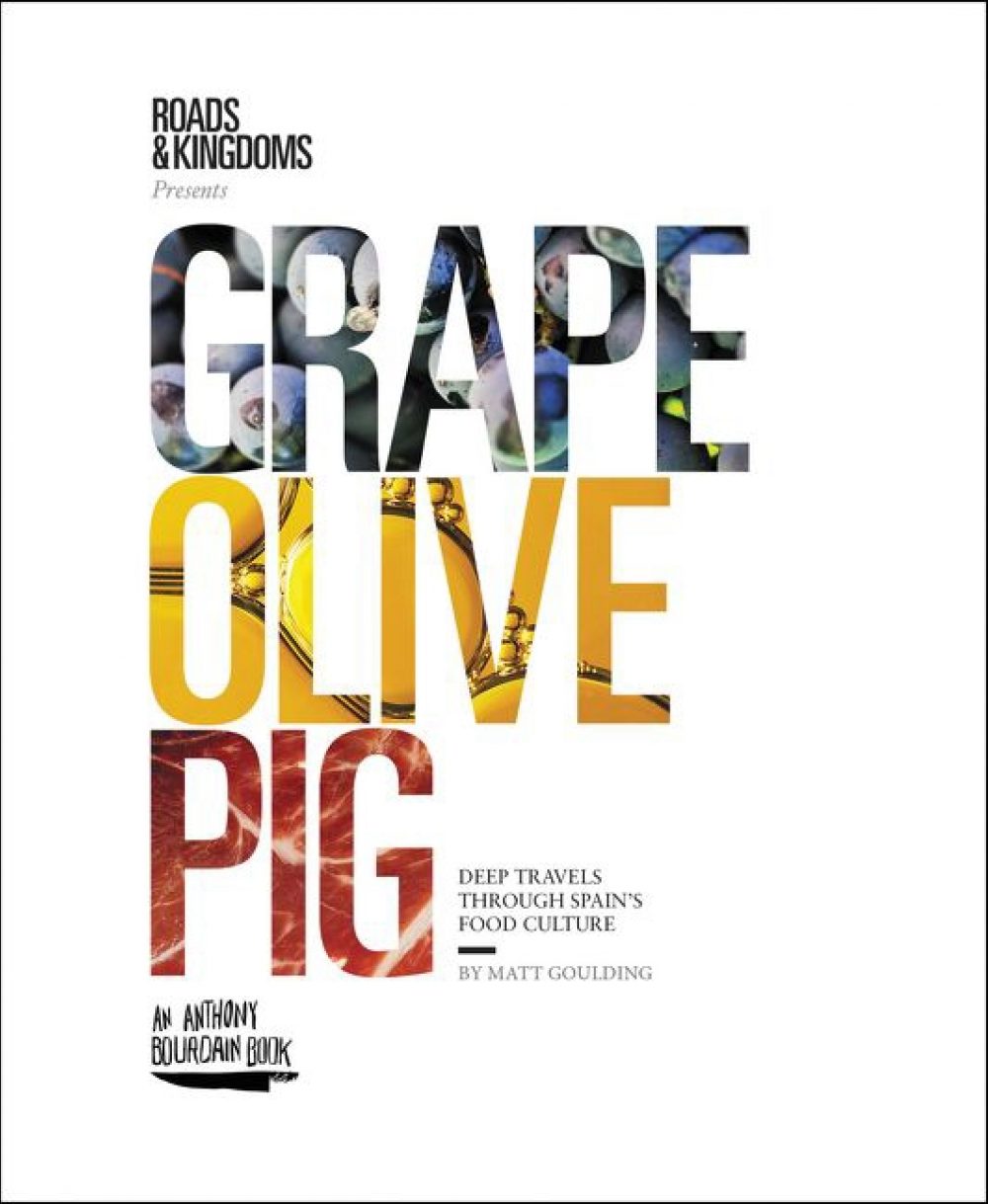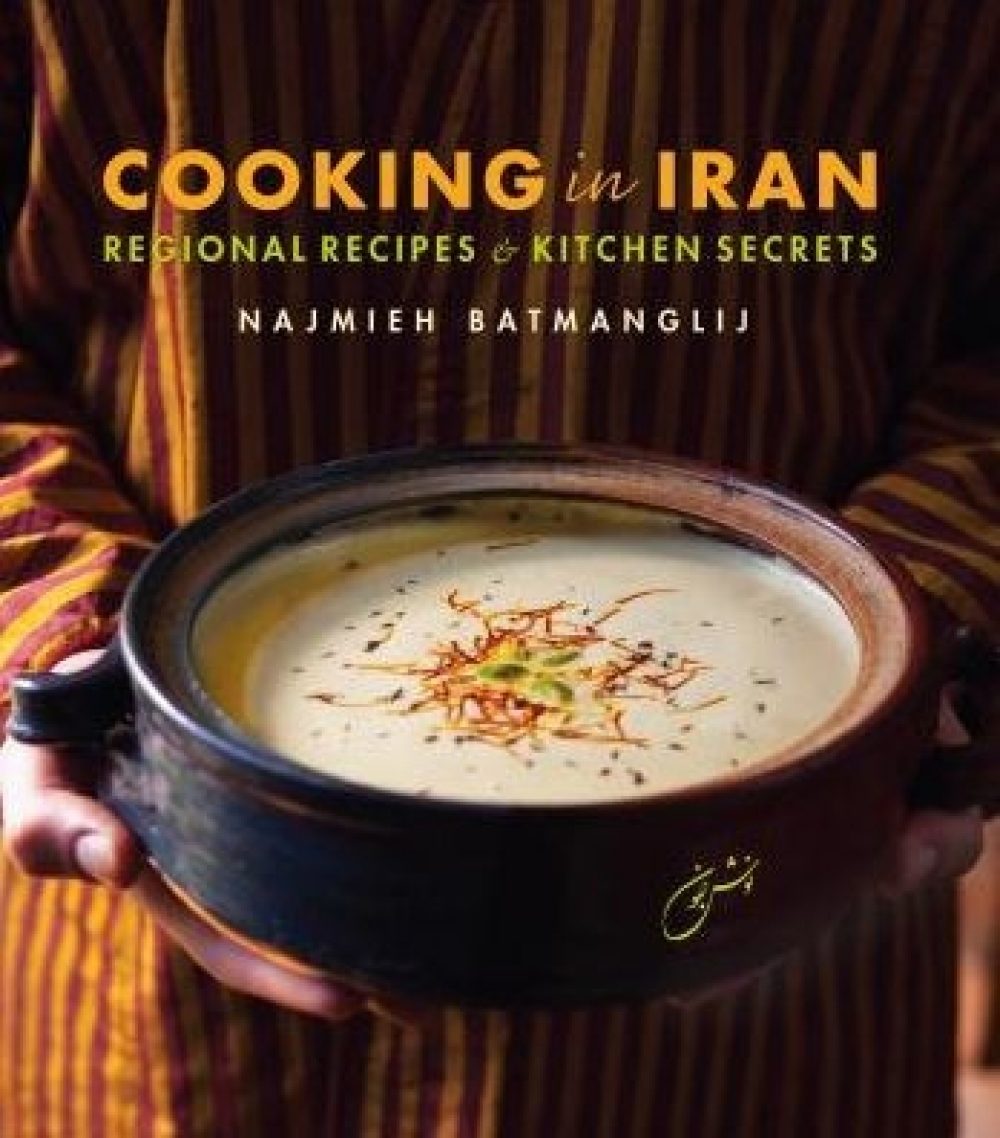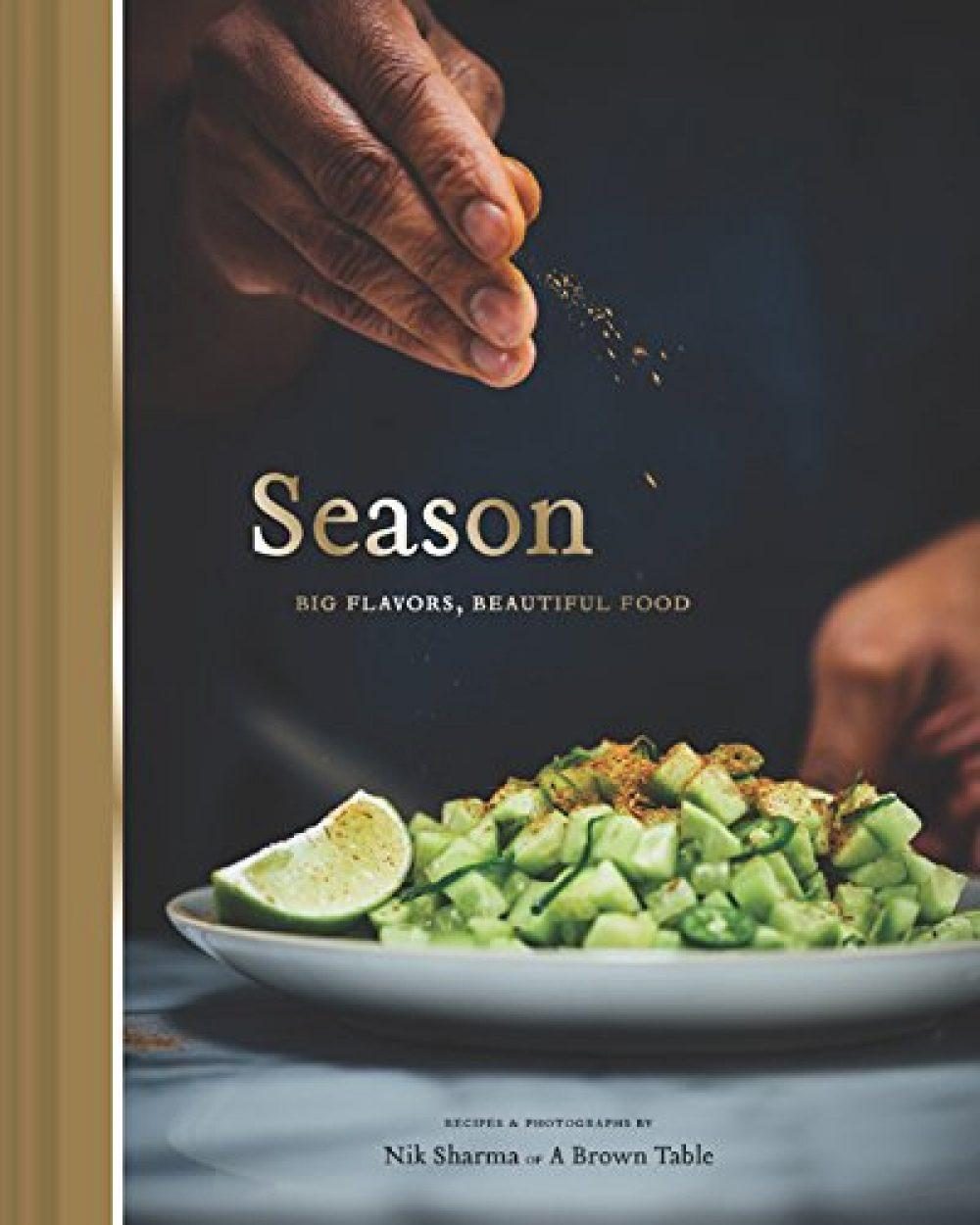
Grape, Olive, Pig
by Matt Goulding
There is travel writing and then there is Matt Goulding. Just when you think there’s nothing new to say about Spain, Goulding finds 100,000 words recording people, places and dishes that are wholly unfamiliar to most of us in the States. His writing is both lucid and energetic, a far cry from a hot day on a tour bus. In his latest work, “Grape, Olive, Pig,” an ode to his life in Spain, he does a masterful job of folding in his personal story, including his attempt to woo his now wife, Laura, who finally yielded to his entreaties the night she stopped by at 2 a.m. to help wash the dishes. Speaking of dishes, Goulding provides big helpings of soupy rice, the real paella (thin and crusty and often made with rabbit and snail), asadores (grill restaurants that he says are better than in Argentina), various acorn-fattened cured hams, vermouth, fish stews and the art of strategic snacking. He points out that sangria is for tourists and that churros are for breakfast, not dessert. He dined at El Bulli in its heyday, once the world’s most impossible reservation, and found the food life-changing on the one hand (an orb of frozen olive oil with a center of liquid olive oil) and difficult on the other (strange animal parts). The chef, Ferran Adrià, said, “I am not in the business of giving pleasure, but producing emotion.” Goulding now lives in Barcelona and admits that crime is an issue—he has lost two bikes, a phone, computer, passport and camera—but accepts this as part of the authentic experience. All in all, you can call Goulding a travel writer, but I prefer a more elevated term—writer—and a damn good one at that.
Najmieh Batmanglij likes to say that the ancient Greeks had really good PR because they get credit for almost every advancement in the ancient world. Yet Persia has a history that dates back over 9,000 years. It also is a region as diverse as any on the planet, from the Caspian Sea to the north (lots of garlic and a penchant for sour foods) to the Persian Gulf in the south (seafood and date palms) and a dozen or more regions between. One expects dishes that do not translate well to other kitchens, but instead, “Cooking in Iran” offers a surprising number of simple, appealing recipes that perfectly suit the new American palate. Braised beans with 5 cups of fresh herbs; onion, egg and spinach soup; a salad of apples and cucumbers, lime juice and salt; quick open-faced omelets with cheese and dill; and rice cooked with oil and butter so that heard of the Iranian Revolution and the hostage crisis, but few of us have cooked Persian food. It’s a culinary adventure well worth taking.

Cooking In Iran
by Najmieh Batmanglij

Season
by Nik Sharma
How does one grow up in Mumbai, then move to Cincinnati and not have one’s head explode? Even more complicated, Nik Sharma grew up in a family with a Roman Catholic mother and a Hindu father, and he studied biochemistry and molecular genetics before turning to food. In other words, Sharma is the perfectly modern man. His cookbook, “Season,” is well named since the recipes are considered in terms of clever (but never wanton) seasoning. Grilled dates with black pepper and honey. Toasted cumin and lime cucumber salad. Cocoa-spiced bean and lentil soup. Ginger-lentil millet bowl. This is not an “Indian” cookbook. It’s just simple food transformed by someone with a sophisticated palate. Sharma also adds a big helping of technique: Smoke lemons before adding them to a chicken noodle soup; leave some spices whole to create random hot spots throughout a dish; or jazz up a tomato salad with toasted and ground cumin and coriander, then drizzle with chili oil. He surprises by not sautéing onions for a frittata, using green chutney as a marinade for chicken, and grinding Darjeeling tea leaves to make an apple masala chai cake. One might tire of culinary mashups with no rhyme or reason, but Sharma is a scientist at heart who approaches recipes with studied intent, not off-the-cuff fusions. The results are impressive. Ottolenghi beware!



